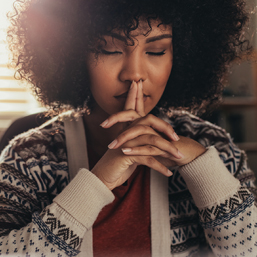
Because I wrote a book about my struggles with postpartum depression after the birth of my first daughter, some people assume that my mental health issues are over. After all, I took medication for eight months, went through talk therapy, and completed my treatment with a healthier mindset and an improved outlook on motherhood - and then I achieved even further closure by publishing my story as a graphic memoir.
But for many, depression is a lifelong struggle - less like a bout of flu and more akin to a chronic condition such as diabetes - and living with mental illness while caring for young children feels like a never-ending fight that leaves you exhausted, both mentally and physically. Whether they are newborns, toddlers, tweens or teens, children are demanding. They will use you up like a tube of toothpaste without even thinking about it.
Dealing with the minutiae of parenthood could very easily take all of your energy and attention, so when you add depression to the mix, you can lose yourself completely. That’s why I have chosen to put my mental health above being a ‘good mother.’ It’s a trade-off: I will choose to be a little less of a mother in order to survive.
Get sleep. I have found that I descend quickly into depression when I don’t get enough rest, so I actively preserve my sleep. When my babies were small, that meant I never shared a bedroom with them because I was always too anxious to sleep with them in the room. It also meant asking my husband to deal with many night-wakings (which he generously agreed to do for my sanity). Now that my youngest is nearly five, I have at times resorted to giving him screen time so that I can nap for an hour. Do I feel like a terrible mother? Yes. But I know myself, and I know that lack of sleep can turn into something much worse for me and my family.
Don’t hide. It is natural to want to put on a happy face all of the time, especially if your children are young, but I believe that it is important for my kids to see me cry when I’m upset. I want them to see that their mother can move through sadness. I try to tell them that this is part of life, that mom is having a hard time, but it will get better. I ask them for hugs.
Children will know if you are working to hide something from them, which can be scarier and more confusing than being honest with them about your feelings.
Do what matters. Part of parenting is modelling good behavior, which is a good reason to take time for things that matter to you, apart from being a mother. For me, that means writing, drawing, and making books. I’ve read a lot of work by authors who question whether motherhood is the enemy of creative work. How do you combine parenting, which can be all-consuming, with making art, which can also be all-consuming? I’m not sure. But I do know that I am a happier, healthier person when I give myself time to pursue my career aspirations. And I think it makes me a calmer, more mentally fit mother, too.
Don’t judge. Don’t judge other parents; don’t judge yourself. Modern parenting tells us that we need to always be perfect, and always be on, but these are unrealistic expectations. I often joke that I would’ve made a great ‘80s mom, free to let her children play
outside all day until it was time to call them in for a dinner of prepackaged convenience food. We have to take some pressure off each other and ourselves, especially since we are all doing this for the first time. So much of depression and anxiety is tied to feelings of inadequacy, self-blame, and shame. Relief comes when we are gentle with ourselves - when we allow ourselves to make mistakes and be bad at things.
Ask for help. I think the hardest part of having depression, postpartum or otherwise, is the loneliness. You feel like you’re in a block of ice, cut off from those around you. That’s why making connections is so important to the healing process, whether that means telling a trusted friend about your feelings or talking to a professional counsellor. Sometimes even just naming your depression or anxiety is a good first step. Asking for help does not mean you are weak. In fact, it’s a sign that you are willing to fight for your life.
Teresa is a Calgary writer who recently published Dear Scarlet, a graphic memoir about postpartum depression. Follow her on Instagram @by_teresawong.
Calgary’s Child Magazine © 2024 Calgary’s Child